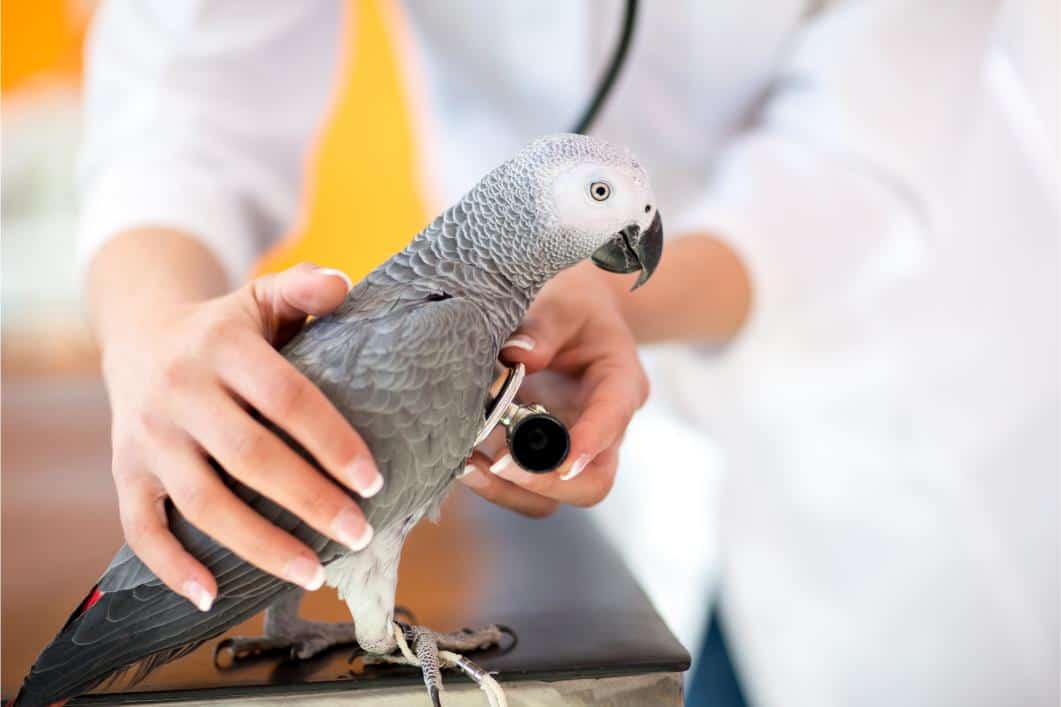Recognizing Signs of Illness in Exotic Pets as Weather Changes

As temperatures drop and days grow shorter, many exotic pets experience subtle shifts in their health and behavior. Birds, reptiles, small mammals, and other exotic pets can be sensitive to seasonal transitions, and fall is a critical time to watch for early signs of illness. Understanding what’s normal (and what’s not) could make all the difference for your exotic friend.
Why Seasonal Changes Matter
Cooler weather, decreased humidity, and changes in lighting can all impact your exotic pet’s health. For reptiles, for example, ambient temperature affects metabolism, digestion, and immune function. Birds may react to changes in daylight with molting or hormonal shifts, while small mammals like rabbits and ferrets can experience respiratory stress as temperatures fluctuate.
This is why fall health changes in exotics are worth paying attention to and why a proactive approach to exotic vet care is so important.
Fall Health Changes in Exotics: Watch for Subtle Clues
Exotic pets are masters at hiding illness. In the wild, showing weakness can make an animal a target, so many symptoms only appear once a condition has progressed. To keep your pet safe, keep an eye out for these exotic pet illness signs:
For Birds:
- Fluffed feathers for long periods
- Sitting at the bottom of the cage
- Loss of appetite or weight
- Changes in droppings (color, consistency, or frequency)
- Wheezing or clicking sounds when breathing
For Reptiles:
- Lethargy or unusual hiding behavior
- Refusing food for more than a few days
- Abnormal shedding
- Swelling of the limbs or jaw
- Discharge from nose or mouth
These are common sick reptile symptoms, and while some reptiles may slow down naturally during cooler months, prolonged changes should always be evaluated by an exotic veterinarian.
For Small Mammals:
- Sneezing or nasal discharge
- Difficulty breathing or open-mouth breathing
- Changes in litter box habits
- Matted fur or decreased grooming
- Behavioral changes like increased aggression or withdrawal
Exotic Vet Care as the Seasons Change
Because symptoms can be so subtle, we always recommend a seasonal wellness exam for exotic pets—especially in the fall. At South Texas Avian & Exotic Animal Hospital, our experienced team knows how to spot sick reptile symptoms and other exotic pet illness signs in the early stages. With species-specific knowledge, advanced diagnostics, and a compassionate approach, we’re here to help your pet thrive through every season.
Don’t Wait When Exotic Pet Illness Signs Are Spotted
If you suspect something is off with your exotic pet, don’t wait. The sooner a problem is identified, the more options we have for treatment and support. Exotic animals often need specialized care, and quick action can prevent a minor issue from becoming serious.
Call us today at (210) 424-1871 to schedule a fall wellness exam. We can help your exotic friends live their best, healthiest lives.
